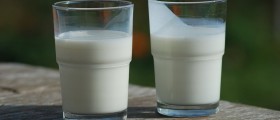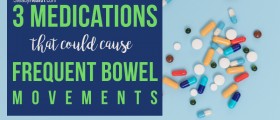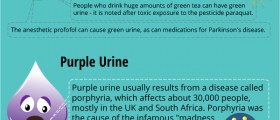Intestinal infections may be caused by various pathogens, such as viruses, bacteria, yeast, and fungi, as well as by mold, parasites, or improper hygiene. This problem may be very serious and, in some cases, even life-threatening. It is also proven that consuming a lot of antibiotics may cause intestinal infections.
Causes of Intestinal Infection
The diseases and infections of the gastrointestinal tract are caused by pathogens, which are small organisms, and when our immune system is strong enough, it can successfully fight them. However, when a person takes prescribed antibiotics, these medications may become strong immuno-suppressants.

Each body has good and bad bacteria. Helpful bacteria help the body to function properly and they are not harmful to the digestive tract; on the contrary, they make the digestive tract even healthier. The friendly bacteria in the intestines are called Lactobacillus. When doctors prescribe antibiotics, they are prescribed to destroy harmful bacteria.
However, these antibiotics also kill good bacteria in the intestine and thus damage digestion. Moreover, if the person is on a poor diet, it further weakens his/her immune system. In such cases, harmful bacteria start to overproduce.
- Objective of this study was to assess the impact of antibiotic exposure, including dose–response, timing and antibiotic class, on the risk of IBD in all individuals aged ?10 years.
- Using Denmark nationwide registries, a population-based cohort of residents aged ?10 years was established between 2000 and 2018. Incidence rate ratios (IRRs) for IBD following antibiotic exposure were calculated using Poisson regression.
- There were a total of 6?104?245 individuals, resulting in 87?112?328 person-years of follow-up, and 52?898 new cases of IBD. Antibiotic exposure was associated with an increased risk of IBD as compared with no antibiotic exposure for all age groups, although was greatest among individuals aged 40–60 years and ?60 years (age 10–40 years, IRR 1.28, 95%?CI 1.25 to 1.32; age 40–60 years, IRR 1.48, 95%?CI 1.43 to 1.54; age ?60 years, IRR 1.47, 95%?CI 1.42 to 1.53).
- For all age groups a positive dose–response was observed, with similar results seen for both ulcerative colitis and Crohn’s disease. The highest risk of developing IBD was seen 1–2 years after antibiotic exposure, and after use of antibiotic classes often prescribed to treat gastrointestinal pathogens.
Symptoms of Intestinal Infection
The most common symptoms of intestinal infections caused by antibiotics are irregular bowel movements, such as constipation and diarrhea, bad breath, and abdominal pain. Furthermore, people who suffer from intestinal infection may experience nausea, vomiting, and fever. Loss of appetite, vitamin insufficiency, and bloating, as well as intestinal gases or dyspepsia, may also occur as the warning signs of this condition.
Treatment of Intestinal Infection
When the symptoms are noticed, it is recommended to immediately visit a doctor, because otherwise, serious complications that may last long may be caused. The intestinal flora must be maintained in good condition because it is important for keeping the chemical and hormonal balance of the body. Since the friendly bacteria are destroyed in high amounts, it is important to enhance their level, and it can be done with a proper diet and supplements.
The diet must be healthy and contain lots of fresh fruits and vegetables, as well as whole grains. These foods are rich in minerals and vitamins that can do a lot of help for the curing of intestinal infections induced by antibiotics.
Furthermore, it is advisable to choose a diet that is low in calories and sugar but rich in fiber. It is also recommended to consume a low-carb diet, peppermint oil, digestive enzymes, and probiotics, as well as garlic, yogurt, oregano oil, and grapefruit seeds.
- www.nhs.uk/conditions/c-difficile/
- medlineplus.gov/ency/article/000259.htm
- Photo courtesy of Michael Mortensen by Flickr: www.flickr.com/photos/35284450@N00/754962309

















Your thoughts on this
Loading...